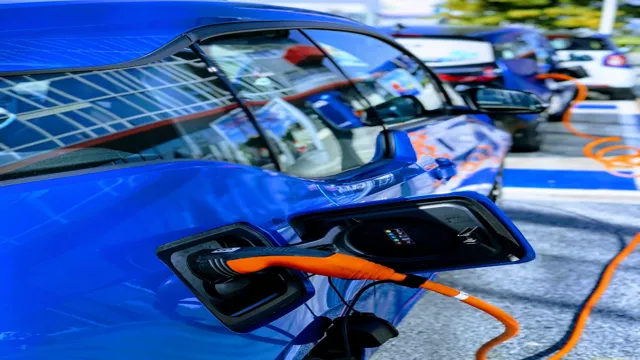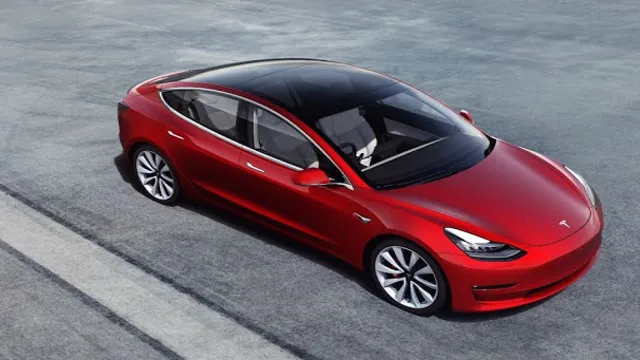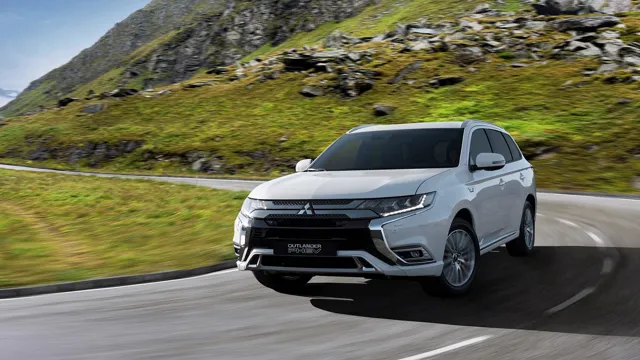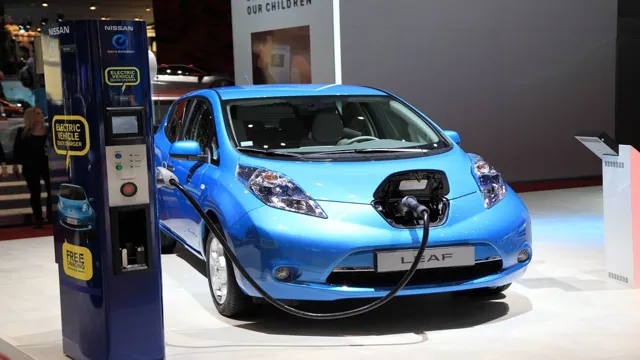Electric Cars Unplugged: Exploring the Varied Types of Eco-Friendly Rides
Electric cars are becoming more and more popular as people realize the importance of reducing carbon emissions and protecting the environment. But did you know that there are different types of electric cars out there? Each type has its own unique features and advantages. In this blog post, we’ll explore some of the most common types of electric vehicles and what makes them unique.
Whether you’re looking to buy an electric car for yourself or just curious about the various options available, read on to learn more.
Battery Electric Vehicles (BEVs)
When it comes to electric vehicles, there are several types to choose from. One of the most well-known types is the battery electric vehicle, or BEV. These cars rely solely on electricity, drawing power from a rechargeable battery pack.
BEVs are great for drivers who want to reduce their carbon footprint, as they produce zero emissions. They’re also known for being cost-effective, with lower fuel and maintenance costs than traditional gas-powered vehicles. However, BEVs may not be the best option for long-distance trips, as they have a limited range and require charging stations to be widely available.
Despite this, the advancements in battery technology are making BEVs a more practical and accessible option for drivers looking to make the switch to electric.
Pure electric cars with no gasoline engine
Are you looking for a car that is environmentally friendly and runs solely on electricity? Then you need to consider Battery Electric Vehicles (BEVs). These are pure electric cars with no gasoline engine, meaning they rely on batteries to operate. BEVs are becoming increasingly popular due to their sustainability and low carbon footprint, providing a greener option for vehicle owners.
With significant advances made over the years, BEVs now have better ranges and can handle long distances. They are also cost-effective in the long run as they require less maintenance compared to traditional gasoline vehicles. However, the downside to BEVs is that they take longer to charge and require charging stations, which are not yet widely available.
Additionally, their purchase price is still relatively high compared to traditional vehicles, presenting a hurdle to widespread adoption. Nevertheless, BEVs are an excellent option for forward-thinking individuals who value sustainability and reduced emissions.
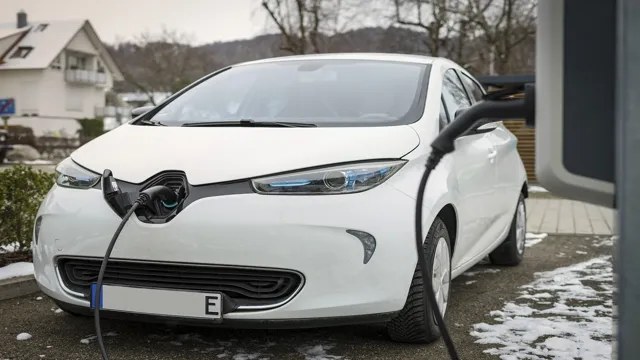
Charge from an outlet and require minimal maintenance
Battery Electric Vehicles (BEVs) If you’re looking for a vehicle that you can charge straight from an outlet and requires minimal maintenance, then a Battery Electric Vehicle (BEV) might just be the perfect fit for you. BEVs are powered by rechargeable batteries and rely solely on electricity, meaning they produce zero emissions. Charging your BEV can be as simple as plugging it into any standard power outlet, and you can even install a charging station at home for even faster charging times.
Plus, without any internal combustion engine parts to worry about, BEVs are much easier to maintain and have lower operation costs than traditional gasoline-powered vehicles. So, not only will you save money on gas, but you’ll also be doing your part for the environment by driving a vehicle that emits zero pollutants. With BEVs, you really can have your cake and eat it too.
Plug-in Hybrid Electric Vehicles (PHEVs)
One of the most popular types of electric cars are plug-in hybrid electric vehicles (PHEVs). These cars use both a traditional gasoline engine and an electric motor to power the vehicle. PHEVs can be recharged using a charging station or by plugging into a standard electrical outlet.
The electric motor is used for short trips, while the gasoline engine can be used for longer trips where the electric motor is not as efficient. PHEVs are a great option for those who want to reduce their carbon footprint, but still have the convenience and range of a traditional gas-powered car. With advances in technology, PHEVs are becoming more efficient and feature-packed.
Electric motors powered by a rechargeable battery
Plug-in Hybrid Electric Vehicles (PHEVs) are the ultimate solution to the environmental crisis we are facing today. These vehicles use an electric motor powered by a rechargeable battery to help reduce greenhouse gas emissions and increase fuel efficiency. The battery of a PHEV can be charged with electricity from an external source, either from a charging station or a wall outlet, allowing the vehicle to operate in all-electric mode for shorter distances.
In addition to this, the PHEV also has a gasoline engine that kicks in when the battery is depleted, extending the driving range significantly. PHEVs are not only cost-effective but also environmentally friendly, making them a popular choice among consumers who are looking for ways to reduce their carbon footprint. With plug-in hybrid electric vehicles, we can enjoy the comforts of a gasoline vehicle and at the same time contribute to preserving our planet for future generations.
Gas engine for backup power only, less range anxiety
Plug-in Hybrid Electric Vehicles (PHEVs) are becoming increasingly popular for their ability to run on electricity while also having a gasoline engine for backup power. This means that drivers are less likely to experience range anxiety since the gasoline engine can kick in and provide additional power if the battery runs low. PHEVs offer a unique driving experience that allows drivers to go further without worrying about finding a charging station, while also offering the added benefit of reduced emissions.
The gasoline engine in PHEVs is typically smaller than those found in traditional gasoline-powered vehicles, which contributes to their better fuel economy. Additionally, PHEVs often have regenerative braking technology that allows them to capture energy that would otherwise be lost during braking and use it to recharge the battery. Overall, PHEVs are a great option for drivers who want the benefits of an electric vehicle without the range limitations.
Regularly use gasoline but overall fuel economy increased
Plug-in Hybrid Electric Vehicles (PHEVs) are a game-changer when it comes to fuel economy. They operate on a combination of electricity and gasoline, with the ability to recharge their batteries by plugging them into an external power source. This means that you can use gasoline regularly, but still enjoy increased fuel economy overall.
PHEVs have larger battery packs than traditional hybrids, which allows them to rely more heavily on electric power, resulting in significantly fewer gasoline fill-ups. The beauty of a PHEV is that you can still drive without worrying about running out of juice, as they have a gasoline-powered backup when the battery runs low. Not only are PHEVs fuel-efficient, they also emit fewer pollutants, making them a more environmentally-conscious choice.
With the increasing availability and improved technology behind PHEVs, it’s no wonder they’re gaining popularity among cost, energy, and eco-conscious drivers alike.
Hybrid Electric Vehicles (HEVs)
If you’re looking to go green with your next vehicle purchase, there are a few types of electric cars to consider. One popular option is the hybrid electric vehicle (HEV), which combines an electric motor with a traditional gasoline engine for increased efficiency. HEVs are great for drivers who may not have access to frequent charging stations or who need the extended range offered by a gasoline engine.
Additionally, some HEVs use regenerative braking to recharge the battery while driving, which can further increase their efficiency. While they may not offer the same level of all-electric driving as plug-in electric vehicles (PEVs), HEVs are a solid choice for those who want to reduce their carbon footprint without sacrificing practicality. So if you’re considering the different types of electric cars available, take a closer look at the hybrid electric vehicle.
Gasoline engine and electric motor work together
Hybrid Electric Vehicles (HEVs) Hybrid Electric Vehicles (HEVs) are a combination of gasoline engine and electric motor that work together to maximize fuel efficiency. The innovative technology helps in reducing emissions and increasing fuel economy. The electric motor supports the gasoline engine when the car is accelerating or traveling at low speeds.
It also aids in charging the batteries through regenerative braking, which captures energy produced by braking and converts it into electric power. The gasoline engine powers the car at higher speeds, which in turn charges the battery so it can assist the electric motor when needed. HEVs use a sophisticated control system to determine the optimal power source based on driving conditions and battery level.
This system optimizes the power source, so the car runs as efficiently as possible, allowing drivers to achieve better gas mileage. Overall, HEVs offer the perfect blend of electric and gasoline power, making them an eco-friendly choice for drivers who want to minimize their environmental impact while enjoying the benefits of a traditional car.
Smaller battery than PHEVs, no need for external charging
Hybrid Electric Vehicles (HEVs) Hybrid Electric Vehicles (HEVs) represent an eco-friendly alternative to traditional gasoline-powered vehicles and a transition from gas-only cars. HEVs combine an internal combustion engine with an electric motor and battery to provide increased fuel efficiency. Unlike Plug-In Hybrid Electric Vehicles (PHEVs), which require external charging capabilities, the battery in HEVs is smaller and charged through regenerative braking.
This means that HEVs offer convenience and require no external charging stations or outlets. Their smaller battery size also makes them more affordable and lighter-weight, leading to improved drivability and handling. Overall, HEVs offer an efficient and cost-effective option for drivers looking to reduce their environmental impact and save on fuel costs.
Better fuel efficiency than traditional gasoline engines
Hybrid Electric Vehicles (HEVs) have gained immense popularity in recent years, and for good reason. HEVs are designed to be more fuel-efficient than traditional gasoline engines, which means they can travel farther on a single tank of gas. In fact, hybrid cars can provide up to 55 miles per gallon, which is almost 25% more efficient than traditional gasoline cars.
The reason for their superior fuel efficiency is down to their advanced technology. They use a combination of gas and electric power, which means that the gasoline engine only needs to work when absolutely necessary, allowing the electric motor to take over during low-speed driving. This means that the engine runs more efficiently, which translates to better fuel economy.
Additionally, HEVs generally produce less emissions compared to their traditional counterparts, making them an eco-friendly option. So if you’re in the market for a new car, investing in a hybrid electric vehicle is definitely worth considering.
Conclusion
In conclusion, the world of electric cars is electrifyingly diverse! From the practical and affordable to the luxurious and high-performance, there’s an electric car out there for everyone. Whether you’re looking for a sleek city cruiser, a rugged off-roader, or a spacious family vehicle, the options are endless. So, why not join the green revolution and take a spin in one of these electric wonders? With their impressive range, eco-friendly credentials, and quiet yet powerful engines, they’re sure to shock and amaze you!”
FAQs
What is a battery electric vehicle?
A battery electric vehicle (BEV) runs entirely on electricity and has no combustion engine. It relies on rechargeable batteries to power its electric motor.
What is a plug-in hybrid electric vehicle?
A plug-in hybrid electric vehicle (PHEV) has both an electric motor and a combustion engine. It can be charged from an external power source and has a limited range on electric power alone.
What is a hybrid electric vehicle?
A hybrid electric vehicle (HEV) has both an electric motor and a combustion engine. The electric motor assists the combustion engine when accelerating or when extra power is needed.
What is a fuel cell electric vehicle?
A fuel cell electric vehicle (FCEV) produces electricity from a chemical reaction between hydrogen and oxygen. It does not emit pollutants and has a longer range than battery electric vehicles.

